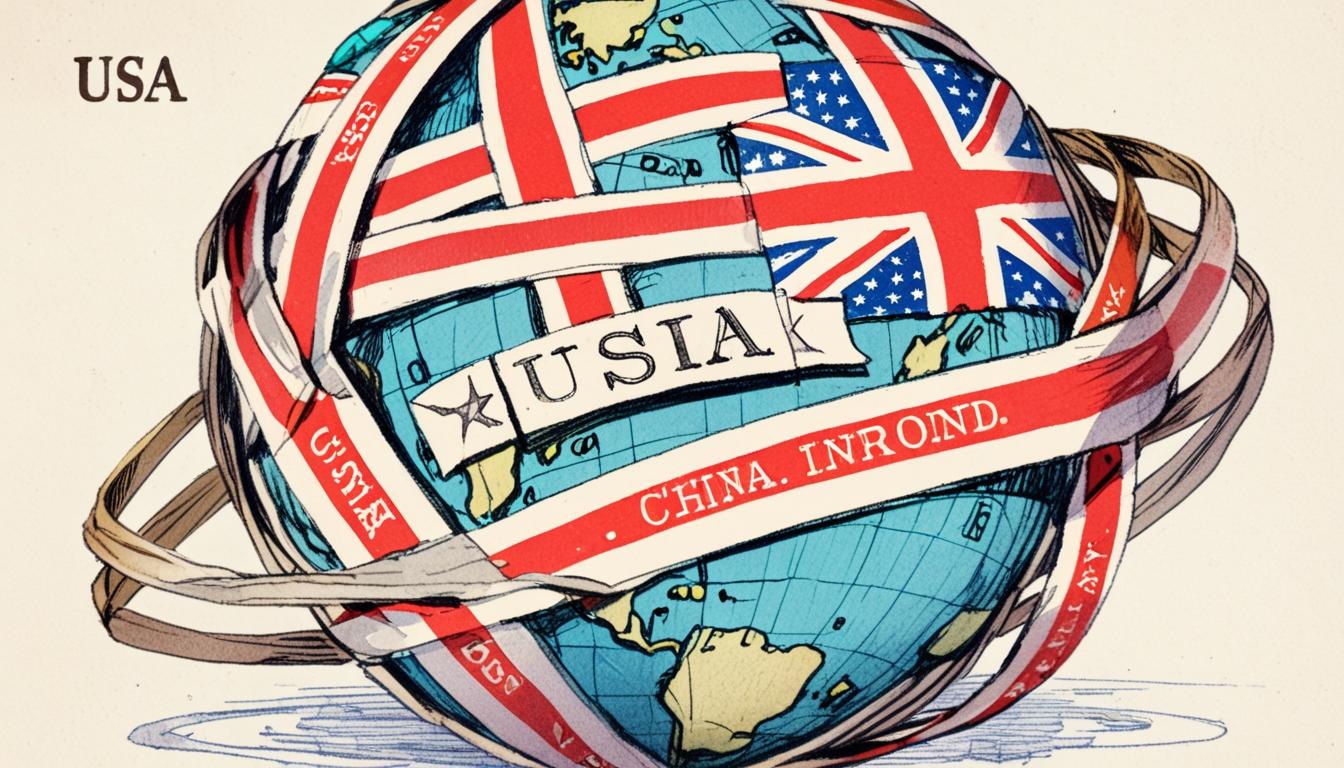The interplay between tariff wars, national branding, and their broader implications has been thrust into the spotlight, particularly in relation to the United States and the United Kingdom. Recent data highlights a significant decline in international tourism to the US, with a nearly 12% drop in overseas visitors recorded in March 2025 compared to the same month the previous year. Notably, tourism from Western Europe saw an even steeper decline of 17.2%. This downturn raises questions about the current perception and influence of Brand USA internationally.
Brand USA has long been associated with ideals such as freedom, innovation, and entrepreneurial ambition. However, this image faces challenges amid concerns voiced by influential figures, including billionaire Republican donor Ken Griffin, who emphasised that the US "was more than just a nation. It’s a brand," highlighting the potential erosion of this universal brand.
The influence of national brands on global business is often underestimated. Stereotypes linked to nationality can serve as shortcuts in consumer recognition. This is evident in marketing strategies that emphasise certain traits associated with a country, such as German engineering precision encapsulated in Audi's slogan "Vorsprung durch Technik," or the sophistication attached to French products like Chanel No. 5.
In the context of the ongoing tariff wars, questions arise about the future trajectory of global trade and branding. Speculation is rife about whether these conflicts may accelerate a shift towards Asian dominance in global markets. The "Made in China" label is undergoing a transformation, as China increasingly positions itself as a serious contender in high-tech sectors, including electric vehicles (EVs) and advanced manufacturing. Brands from China, such as BYD and Chery, are making significant inroads into European markets, reshaping perceptions.
The tech sector presents another area of competition. China's emergence as a technology superpower aligns with President Xi Jinping’s long-term ambitions, culminating in developments like DeepSeek’s new AI model, which was released on the day Donald Trump began his presidency.
Lucy Jameson, co-founder of Uncommon Creative Studio, reflected on her own experiences launching her company amidst the chaos of Brexit, suggesting that uncertainty often heralds opportunities. She asserts that while the US faces scrutiny over its brand, the UK may find itself positioned advantageously to capitalise on the fallout.
Brexit has already impacted Brand Britain, which has historically been characterised by stability, pragmatism, and cultural heritage. In the shadow of tariff wars, the UK’s reliance on finance, services, and creative sectors has siphoned some of the immediacy of economic fears associated with manufacturing. The global appeal of British traditions—including the royal family, renowned institutions such as Oxford and Cambridge, and the rich tapestry of British innovation—could provide a counter-narrative to concerns about Brand USA.
Jameson argues that this constellational shift offers the UK a unique opportunity to reaffirm its global standing as a bastion of liberal values, creativity, and educational excellence. As she highlights, there exists an imperative for stakeholders in British brands, tourism, and government sectors to respond proactively to the current landscape.
The complexities of branding in an increasingly turbulent global market underscore the need for nations to not only safeguard their cultural identities but to also navigate the evolving dynamics of international relations and consumer perceptions.
Source: Noah Wire Services
